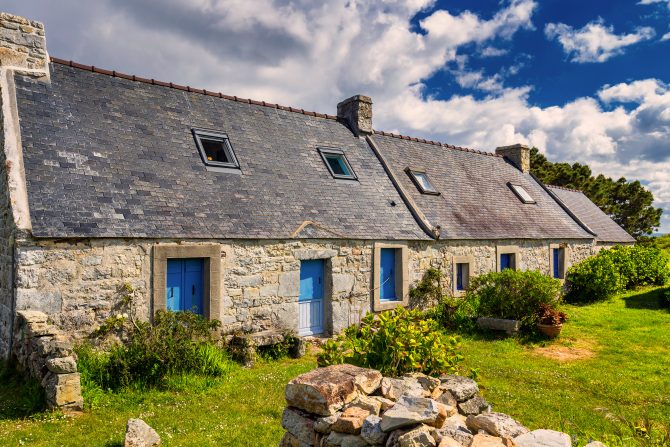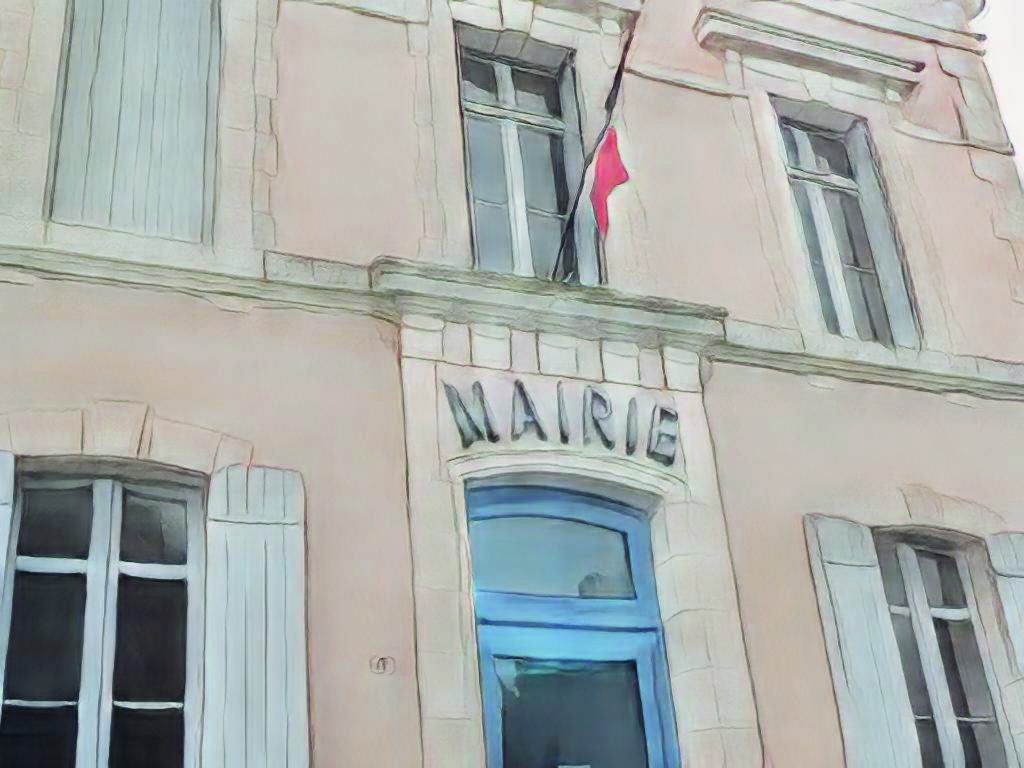Top tips on buying and moving to France from the experts


Exhibitors from the forthcoming French Property Exhibition share their expert knowledge with answers to some of your FAQS
Have a survey done for peace of mind – Matthew Noble, MKN Surveyors, Stand 5
When purchasing an older property in France, it’s easy to assume that its age alone is proof of stability. However, hidden issues often arise, especially when modern materials have been added to traditional structures, potentially leading to damp issues, cracking and compromised stability. U
nlike in the UK, France does not require building regulations for internal structural work, meaning prior renovations -such as removing walls or adjusting layouts – may lack oversight, creating risks for new owners. A professional survey helps reveal unseen issues, from roof defects and wear to chimney stack problems detectable only via drone. It also takes into account local geography and soil stability, helping to distinguish harmless seasonal cracking from serious foundation concerns.
Reviewing diagnostic reports with a surveyor provides clarity, allowing you to assess the feasibility of any future renovations or expansions. Ultimately, investing in a survey provides peace of mind, along with a plan for maintaining and enhancing the value of your French property.
10 tips for packing up your home – Rob Bartup, GB Liners, Stand 53
1. Always pack boxes full to the brim so that they can be stacked without the risk of crushing.
2. If you can lift a box, we will be able to carry it.
3. Pack heavier items such as books into smaller boxes.
4. Clearly mark the word ‘fragile’ onto boxes that contain china and glass.
5. Pack heavier items such as plates and dishes at the bottom of boxes, with more lightweight items such as glassware on top.
6. Small photo frames and plates should be individually wrapped and packed on their edge.
7. Keep your ‘odds and ends’ (remote controls, screws, keys etc) together in one easy identifiable box.
8. Clearly write on the box a list of the contents and which room it was packed from.
9. Tape boxes properly. Seal the bottom before doing both ends, making a letter H. Repeat this when closing the box too.
10. Avoid packing paints, gas cylinders, highly flammable products, oils, weapons and perishable foods. When packing, tape the boxes well!
This is not an exhaustive list. Or you could get GB Liners to pack for you!
How to choose a school – Véronique Martinet, Globe Educate, Stand 37
Choosing a school in France is a significant decision, with many options ranging from public institutions to private international schools. Here are key factors to help ensure the best fit for your child: Is an international school the best option for your child?
1. Curriculum and language: Schools in France offer various curricula, including the French national curriculum, international programs like the International Baccalaureate (IB), and British, American, or other national curriculums. If you want a bilingual environment or a curriculum compatible with other countries, consider international schools. They often emphasise English and French fluency, preparing students for a globalised world.
2. Accreditations and reputation: Look for accreditations from recognised educational bodies. Find expat Facebook groups and ask for advice on schools in the area.
3. School environment and values: Class sizes, resources and teaching approaches vary so visit schools to get a feel for their atmosphere, teaching philosophy and values. Ask how they integrate newcomers, especially those who don’t yet speak French.
4. Location and accessibility: Proximity to your home or work can be crucial for daily routines, so consider commute times and transport options.
5. Extracurriculars and community: Strong extracurricular programs and a vibrant school community can enhance your child’s social and emotional growth.
The role of the ‘mairie’ – Arthur Cutler, Navigate France, Stand 25

You’ve just moved to France, and need to know about local services or help – most rural communes in France are small and the ‘go-to’ for advice or services within the commune is the local town hall (mairie), usually located in the town or village centre, and more often than not, with limited opening hours.
The mairie is responsible for maintaining the town or village and is a focal point for handling many administrative tasks, although more and more are being handled online direct with the relevant administrative body. Getting to know the mayor (maire) and the rest of the team can be useful and will help your integration into the community.
Many mairies issue a regular newsletter covering topical matters, local business links and social events, with a list of newcomers to the area. The mairie is there to serve the community, so make the most of it and don’t be afraid to ask for help and advice.
What to look for in a château property development – Axel Bosch, Château de Monboucher, Stand 61
The size of the apartment you are able to buy in a château will depend on your budget, of course. But to ensure you’re buying into a château lifestyle, check that key features such as a park, pool, wine cave and so on are joint property. Ideally, your shared château will offer the option to rent space for family and friends too, negating the need to buy a larger apartment than you need, or to try and squeeze in additional bedroom space.
The perfect place may provide workshop areas to pursue physical activities such as artwork, craftsmanship and so on-at Chateau de Monboucher we provide facilities to take care of and store classic cars. A private garden where you can grow your own flowers or vegetables may be important to you too. Also, find out about the other owners, so you can make sure you’re buying into a place with likeminded people who can become good friends!
Match the area to your lifestyle – Samm Khourry, Richard Immobilier, Stand 55
Do some prep work before viewings in order to choose the right area and property, to suit your lifestyle. For example, if you’re into golf, is there a choice of golf clubs nearby? The same for horse riding, skiing and other outdoor pursuits. If you enjoy the beach, there’s no point looking inland. And you won’t be happy in a secluded rural property if you are the life and soul of the party.
If you’re buying as a couple, make sure you’re on the same page – especially on viewing trips, as properties may be some distance from each other, and you won’t want to waste your or the agent’s time.
People tend to arrive with a tunnel vision of a stone house with blue shutters, however, there is so much more to take into consideration.
Location, location, location: remember, you can always change the property but never its location.
Communication with your estate agent is key. Tell them what you like/dislike, and what sort of lifestyle you will require in France.
If you’re looking for a renovation project, note that since Covid the cost of materials has risen so you will need to factor that in.
Before you move to France, make sure you have done your homework regarding the visa system, especially if you need a working visa.
Do your homework – Debbie Nye, FrenchEntrée Property & Relocation Advisor, Stand 71
I cannot stress enough how important it is to do your homework before deciding on your move to France. From choosing which area to live or to holiday in, to understanding the complex French system, you really need to know your facts! As non-EU nationals, if you are British you now have to factor in a specific visa application according to whether you wish to work in France, retire there, or if you just want a holiday home.
The personal tax and social security systems differ from those in the UK, so it’s important to understand what income may be taxable in France, whether you need to pay into French social security and what you get out of it, or if your income is liable to ‘social taxes’. This is true for both French tax residents and non- residents running a property rental business.
Don’t be put off moving to this beautiful country, with its wonderful scenery, gastronomy and culture, but do get all the facts in advance before you set your heart on your dream home! If you would like guidance on your individual situation and the steps to take to help make your dream a reality, feel free to find out more about our FrenchEntrée Member packages at frenchentree.com/members.
Financing your purchase – Jeevanthy Nivert, Societe2 Courtage, Stand 23
Make sure you choose a mortgage that’s best for you: You can opt for a standard repayment mortgage, with fixed, variable or capped rates, and there are also interest-only loans for buyers who wish to pay only the interest and repay the rest at the end of the term.
Use a mortgage broker: A broker specialising in non- resident loans has a deep understanding of French banks’ requirements and the specificities of each nationality and country or residence.
Mortgage over cash: Even if you have the funds, taking out a mortgage can have tax advantages in France and investment projects. It also allows you to keep liquidity available for other investment projects.
Meet these and other exhibitors at the French Property Exhibition on 25-26 January 2025, at Novotel London West. For more information and to register for free tickets, visit frenchpropertyexhibition.com
Lead photo credit : Shutterstock
Share to: Facebook Twitter LinkedIn Email
More in French Property Exhibition, Property tips


